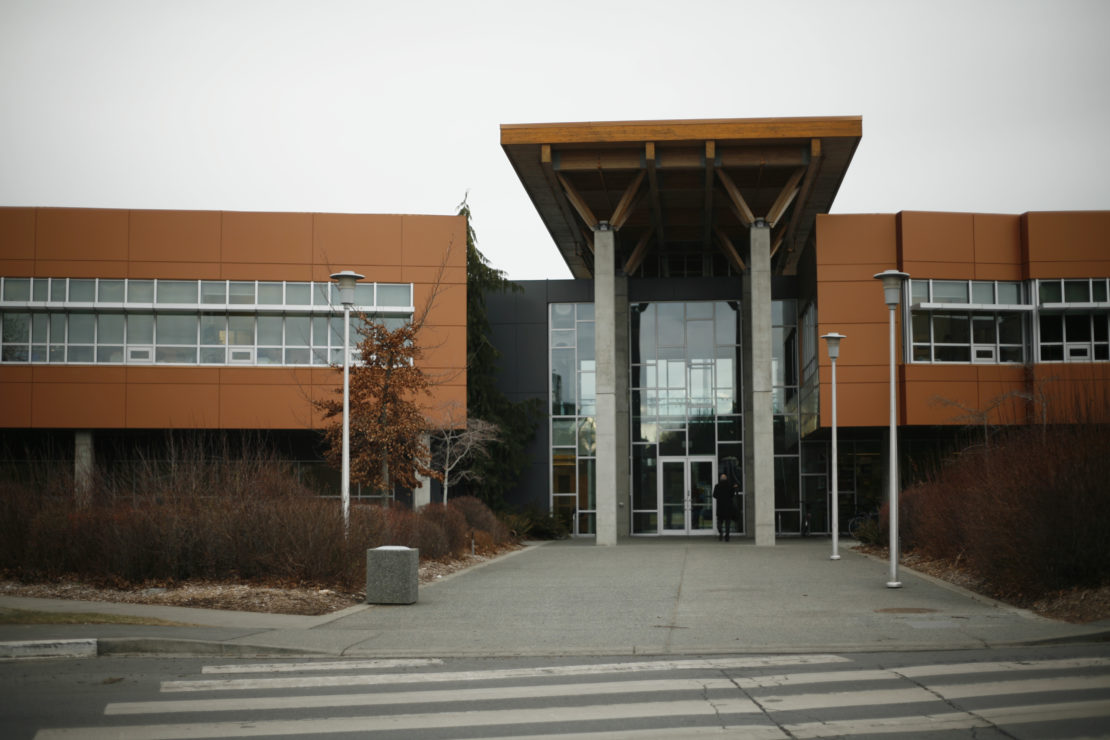240 faculty members sign letter calling UVic’s fossil fuel investments a “major moral, reputational, and financial risk”

A Board of Governors vote on whether to change UVic’s short-term investment strategy to include options for divestment from fossil fuels has been moved to Jan. 28. This vote was anticipated to take place at the Nov. 26 meeting, but has moved to allow for an updated investment policy based on community consultation to be prepared and presented to the board.
As of 2017, UVic had $39.72 million invested in the fossil fuel industry. Juliet Watts, UVSS Director of Campaigns and Community Relations, says that it’s likely that around 10 per cent of the university’s $200 million in bonds and short-term investments is invested in fossil fuels.
This vote is anticipated to be the culmination of years of action by students, faculty, and staff at UVic in favor of divestment. In 2014, UVic faculty held a referendum that showed 66 per cent were in favor of UVic’s divestment from fossil fuels. Students held a similar referendum, and 77 per cent of students voted in favor of divestment. However, the UVic Foundation announced in 2016 that it would not divest from fossil fuels, and instead created a small fossil fuel-free endowment fund.
The new investment policy will incorporate Board of Governors feedback from an education session conducted on Nov. 14, which included a 10 minute presentation by the UVSS.
“This [vote] is later than our original timeline and has been pushed back as a result of the date of the special education session,” said Andrew Coward, UVic Treasurer, in an email to the Martlet and the UVSS. “Once that policy has been approved we will turn our attention to updating the policy on short term investments.”
Options that the board may vote on for short-term investment going forward include impact investing (intended to generate positive social or environmental impact alongside revenue), positive screening (favouring environmentally responsible companies), and negative screening (which would screen against fossil fuel investments, and is the only option the UVSS supports).
Despite attending bi-weekly meetings regarding divestment consultation with UVic executives and UVSS Directors, Watts was not aware of the decision to move the vote back two months prior to receiving questions from the Martlet.
“Trying to profit from climate change and the dispossession of Indigenous peoples (furthered by fossil fuel infrastructure such as pipelines) is in direct opposition to UVic’s stated commitments to sustainability and reconciliation in the Strategic Framework.”
Letter from UVic Faculty for Divestment
“I am incredibly disappointed but not surprised to see UVic failing to be accountable to the previously agreed upon timeline of decision making,” said Watts. “While it is positive that consultation and education is being done, it is no excuse for neglecting to properly communicate and honour commitments made to those being consulted.”
As a result of student protests in the spring, UVSS Directors and UVic executives have participated in bi-weekly meetings regarding UVic divestment since May. Throughout the fall, members of the Board of Governors have undergone education sessions about responsible investing from Coward.
“We’re the reason the consultation process started, so we’ve been asking them to do campus-wide consultation since May,” said Watts. “So the reason that these processes are happening and that they’re reviewing this policy at all is because of the extensive bi-weekly lobbying we’ve done.”
Until Nov. 8, the university conducted consultation with members of staff and faculty, along with graduate students and anyone who reached out to the UVic Treasurer’s office.
UVic Faculty for Divestment submitted a letter signed by 240 faculty (at time of writing) condemning the current UVic investment strategy, and urging the university to vote in favor of divestment and negative screening.
“Continuing to stay invested in fossil fuel companies is a major moral, reputational, and financial risk,” reads the letter. “Trying to profit from climate change and the dispossession of Indigenous peoples (furthered by fossil fuel infrastructure such as pipelines) is in direct opposition to UVic’s stated commitments to sustainability and reconciliation in the Strategic Framework.”
The letter cited the UN’s Intergovernmental Panel on Climate Change report that stated the planet has 11 years to avoid devastating impacts of a 1.5 degree global temperature increase, along with Canada and other governments’ decision to declare a climate emergency.
“Let’s be clear,” the UVic Faculty for Divestment letter reads. “Many of the millions who were on the streets [in September] were protesting government inaction but also the infraction of their own institutions which, like UVic, continue trying to profit from the industry primarily responsible for emissions, but also for obstructing needed climate action through lobbying and funding climate denial.”
According to Coward, the logistics of planning and carrying out research and consultation on the investment policy has taken longer than initially anticipated.
“They didn’t expect so many members of the community to want to be consulted so they’ve had to extend the deadline,” said Watts, based on her conversations with Coward.
The Board of Governors is expected to discuss the investment policy further at the Nov. 26 meeting before the updated Responsible Investment Policy based on the consultation and board feedback will be presented and voted on in January.
“This gap between stated commitments and insufficient actions is becoming a bigger risk and vulnerability as each day passes,” said the UVic Faculty for Divestment in their letter. “Not only is [negative screening] the financially responsible move, but it can also position UVic as a true climate leader among the millions of young people in Canada and worldwide who, like Greta Thunberg, are rightly frightened for their future.”







